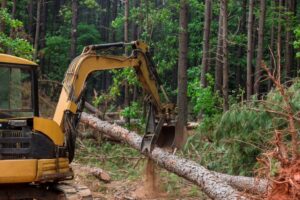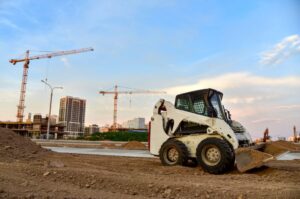Skid steer loaders are indispensable machines known for their versatility and performance. However, like any heavy equipment, they are not immune to maintenance issues and problems. In this comprehensive article, we will explore the common maintenance challenges faced by skid steer loader owners and operators. From engine problems to hydraulic system issues, electrical faults, and wear and tear of attachments, understanding these common issues and implementing preventive measures will help keep skid steer loaders in optimal condition, ensuring smooth operation and longevity.

1. Engine Problems
Overheating: Engine overheating can occur due to clogged radiators, low coolant levels, or faulty cooling fans.
Air Filter Issues: A clogged air filter can hinder air intake, affecting engine performance and fuel efficiency.
Fuel Contamination: Contaminated fuel can lead to engine misfires and reduced power output.
2. Hydraulic System Issues
Fluid Leaks: Hydraulic fluid leaks can arise from damaged hoses, seals, or connectors, leading to reduced performance and potential system failure.
Low Hydraulic Fluid: Insufficient hydraulic fluid can cause poor lifting and digging capabilities.
Unresponsive Controls: Air in the hydraulic system or faulty control valves can result in unresponsive machine movements.
3. Electrical Faults
Faulty Wiring: Wiring issues, such as exposed or damaged wires, can cause electrical malfunctions and safety hazards.
Battery Problems: A weak or dead battery can lead to starting issues and affect the electrical system’s performance.
Sensor Malfunctions: Faulty sensors can provide inaccurate readings, affecting the skid steer loader’s overall operation.
4. Attachment Wear and Tear
Bucket Wear: Constant use can lead to bucket wear, affecting its ability to pick up and move materials effectively.
Attachment Misalignment: Misalignment of attachments can cause stress on the skid steer loader’s frame and components.
Hydraulic Attachment Failure: Hydraulic attachments require proper maintenance to avoid premature failure.
5. Tire and Track Maintenance
Tire Punctures: Skid steer loader tires are susceptible to punctures and tears in rough terrains.
Track Damage: Tracks can experience wear and damage over time, affecting the skid steer loader’s performance.
Tire or Track Replacement: Regular inspection and replacement of tires or tracks are essential to prevent breakdowns.
6. Preventive Measures and Regular Maintenance
Scheduled Inspections: Regular inspections help identify potential issues before they escalate.
Fluid Checks: Routine checks of hydraulic fluid, engine oil, and coolant levels ensure proper functioning.
Greasing and Lubrication: Proper greasing and lubrication of moving parts reduce wear and friction.
7. Operator Training and Care
Operator Training: Adequate training ensures operators are familiar with skid steer loader functions and safety protocols.
Proper Use of Attachments: Educating operators on correct attachment use minimizes premature wear and damage.
Cleaning and Storage: Regular cleaning and proper storage protect skid steer loaders from environmental damage.
Conclusion
Skid steer loaders are invaluable assets in various industries, but they are susceptible to common maintenance issues and problems. Engine troubles, hydraulic system issues, electrical faults, and wear and tear of attachments are among the challenges skid steer loader owners and operators face. However, preventive measures and regular maintenance practices can significantly reduce the occurrence of these problems, ensuring smooth operation and prolonging the machine’s lifespan. By investing in operator training, regular inspections, and proper care, owners can optimize the performance and efficiency of their skid steer loaders, making them reliable workhorses that contribute to increased productivity across various applications.



